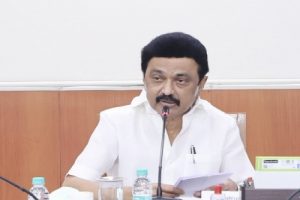Ashraf Ghani won a second term as president of Afghanistan, the country’s independent election commission announced on Tuesday, but his closest opponent refused to recognize the results, declaring himself the winner and potentially endangering peace negotiations with the Taliban.
The Taliban also rejected Ghani’s win, further putting into question a US peace plan that calls for a reduction in violence followed by a more permanent agreement expected to be signed Feb. 29, between Washington and the Taliban.
Advertisement
According to the election commission, Ghani garnered 923,592 votes, or 50.64%, in the troubled election that took place last Sept. 28. The country’s chief executive, Abdullah Abdullah received 720,841 votes, or 39.52%.
Ghani and Abdullah head a fragile national unity government that was put together under US pressure after both leaders claimed victory in Afghanistan’s 2014 elections.
Following the announcement of the results, Ghani appeared among supporters in Kabul, where he emphasized the importance of peace talks with the Taliban, saying his winning team will bring peace to the country.
Its time to make Afghanistan united,” he said, urging the insurgent group to participate in the democratic process without referencing the peace agreement he supported in Munich.
I congratulate him and he did a good job. We ask the Taliban as well to come and participate in elections, Ghani said.
Although there were more than a dozen other candidates running in the 2019 election, Ghani and Abdullah were the only two with a real chance of victory. Both claimed they had won soon after polls closed, and accused the other camp of fraud.
Results that were originally to be announced on 7 November were delayed for months amid arguments over corruption, accusations of misconduct and technical problems counting ballots.
On Tuesday, election authorities said Ghani won 50.64% of the vote, or 923,592 ballots, while Abdullah received 39.52% or 720,841 ballots.
Abdullah’s campaign chief hinted at the use of force if the dispute could not be resolved. “We are out of the election process,” Fazal Ahmad Manawi said on Twitter. “The reasons for this lack of legitimacy is clear to all as much as the sun is.
Election results were repeatedly delayed amid accusations of misconduct, fraud and technical problems with counting ballots. The final vote tally was original to be announced Nov. 7.
In Kabul, it was rare to see a crowded polling centre. Afghans who had patiently lined up before voting centres were opened, in some locations found that election officials had yet to arrive by opening time.
The election commission tried to launch a ballot recount in November but Abdullah halted the attempt, saying he wouldn’t let his observers participate. Thousands of his supporters rallied against what they said were fake ballots and the controversial recount had seemed set to favour Ghani.
(With inputs from agency)











